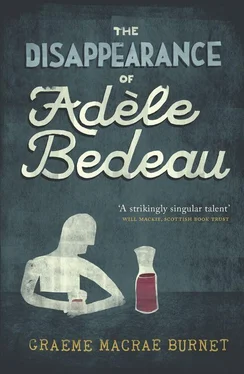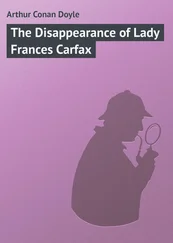At the appointed hour, and despite the large number of customers still to be served, Pasteur joined Lemerre, Petit and Cloutier at their table. His participation in the weekly game had already assumed the weight of tradition.
FIN
That this is the first appearance of The Disappearance of Adèle Bedeau in English is remarkable. In France, the novel has been almost continuously in print since its publication in 1982 and, since Claude Chabrol’s screen version of 1989, it has achieved the status of cult classic. Certainly it is a novel in a minor key. Its protagonist, Manfred Baumann, is an ill-at-ease outsider, an observer of life rather than a participant. The novel is set in the unremarkable town of Saint-Louis on the French-Swiss border, a place where, as the opening pages make clear, few visitors wish to linger. And yet for thirty years readers have chosen to spend a little time there and to pass a few hours in the company of the maladroit Baumann.
Raymond Brunet was born in Saint-Louis, Haut-Rhin, on 16 October 1953, the son of a successful family lawyer. His mother, Marie, was barely out of school when she married Bertrand Brunet in 1948. He was forty-two. Marie was an exceptionally pretty girl from a family of shopkeepers. Childhood photographs show a smiling, vivacious girl often in the company of her pet terrier. Bertrand Brunet — undoubtedly the prototype for Manfred Baumann’s grandfather in the novel — was a strict Protestant who disapproved of frivolity and did not enjoy socialising. It must have been a grim life for his young wife and it seems likely that, confined to the family home, Marie succumbed to what we would now call depression. Certainly, she frequently retired to bed for days on end. Like a flower deprived of water, she wilted. It is no surprise that Raymond remained an only child.
Despite these unpromising circumstances, Raymond seems to have been a cheerful little boy. The grand family house on the outskirts of the town provided an excellent playground. He enjoyed hiding away in the nooks and crannies of the wood-panelled passages and, in summer, building dens among the trees at the bottom of the large gardens. For company he would hang around the kitchen, getting in the way of the housekeeper as she went about her chores. There was also a succession of maids to follow around, but they never stayed long enough for him to become attached. Like many an only child, Raymond could often be heard talking to himself or in earnest dialogue with his toys. At school he was well behaved and always close to the top of the class.
As a teenager, though, he became surly and withdrawn. Young children accept whatever situation they find themselves in as normal. As they grow older, however, they begin to see that not all families are like their own. Perhaps Brunet began to resent the austere atmosphere at home. In addition, he was lanky, socially awkward and suffered badly from acne, a condition that left his face scarred into adulthood. He was expected to follow his father into the legal profession, something he had no interest in doing, and the feeling that his destiny was not in his own hands weighed heavily on the young man. He began to read voraciously. In the summer he would go off on his bicycle with a packed lunch and a satchel of books, often to the woods of the Petite Camargue to the north of the town.
When Brunet was sixteen, his father was killed in a car accident. Late one night his car left the A35 from Strasbourg and hit a tree. Mostly likely the lawyer had fallen asleep at the wheel. There were no suspicious circumstances, but nobody knew what he had been doing in Strasbourg that evening. It was a minor mystery which merited a few lines in L’Alsace newspaper. For Brunet, however, his father’s death meant only a reprieve from the obligation to become a lawyer. Freed from parental pressure, he left school at the earliest opportunity and took a job in the office of a local insurance company. It was mundane clerical work, but according to his employer, he showed no signs of dissatisfaction. He arrived punctually and carried out his work diligently. He did not take much part in office banter; indeed, his predominantly female colleagues regarded him as somewhat aloof and superior. It was at this time that Brunet began to frequent the Restaurant de la Cloche, which was to become the principal setting of La Disparition d’Adèle Bedeau.
BRUNET’S FIRST LITERARY EFFORT was a play in the absurdist tradition, based entirely in the restaurant. Many of the characters of the later novel appear in the play. Au Restaurant de la Cloche is a highly stylised, somewhat pretentious piece in which snatches of dialogue are repeated by different characters, mundane actions recur rhythmically and the ever-present proprietor comments on the action directly to the audience. It’s a mish-mash of Beckett, Brecht and Robbe-Grillet and of interest only as an insight into Brunet’s influences at the time. In the autumn of 1978, Brunet sent it to the Paris theatre producer Max Givet, who rejected it as dated and derivative. The playscript was found among the producer’s papers after his death in 1997. Aside from the present novel, it is Brunet’s only surviving work.
Brunet continued to live in the family home, as he would for the rest of his life. His father’s death had not altered the routine of the household much. As often as not, Brunet took his evening meal alone in the dining room, while his mother remained in bed. Afterwards, he would go upstairs and chat to her for a few minutes before retiring to what had been his father’s study to read or write. Sometimes he went out and wandered around Saint-Louis, stopping off in one or other of the town’s bars for a glass of wine or a pastis .
Brunet’s awkward character made it difficult for him to form normal relationships and it is possible he remained a virgin throughout his life. As far as we know, he never had a regular girlfriend. He may have visited establishments like the one depicted in Chapter Four of the present novel, but other than the accuracy of the description, there is no evidence that he did so. Later, when he spent some time in Paris, some speculated or assumed that he was gay, but apart from his apparent lack of interest in women, this too is without foundation. His reported disinterest in the opposite sex should probably be more correctly ascribed to chronic shyness.
Brunet first submitted La Disparition d’Adèle Bedeau in March 1981. It was rejected by a number of publishers before being accepted by Éditions Gaspard-Moreau and appearing without great fanfare in the autumn of 1982. A number of favourable, though not rapturous, reviews were enough to justify a second and then a third edition. The book sold steadily for the next couple of years, but with no prospect of a follow-up on the horizon, it was allowed to fall out of print.
Around this time, Claude Chabrol, doyen of the cinematic New Wave of the early 1960s, came across a copy in a second-hand bookshop in Paris. The director was very taken with the novel’s portrayal of provincial life and contacted the publisher. After a brief consultation with Brunet, the rights were sold to the famous director for a nominal sum. For both Gaspard-Moreau and Brunet it was a no-lose situation: the novel was out of print and if a film were ever made, it would provide the book with a second wind. A script was swiftly written, but French cinema was at that time in thrall to the flashier talents of Luc Besson and Jean-Jacques Beineix, and the downbeat realism of La Disparition d’Adèle Bedeau was hopelessly out of step with the times. It was only when Chabrol passed the script to Isabelle Adjani, star of Subway and One Deadly Summer , that the project got off the ground. The then queen of French cinema agreed to play the role of Alice Tarrou, whose part in the story was greatly expanded. Adjani’s involvement was enough to secure the necessary funding and film went into production in the summer of 1988.
Читать дальше












